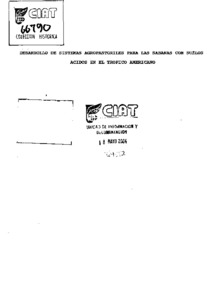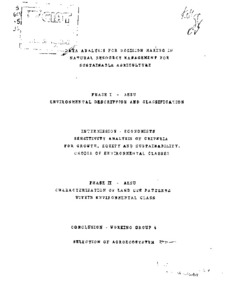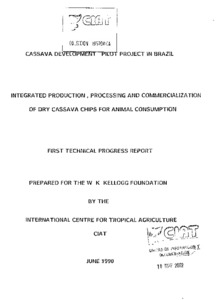Mission
To reduce hunger and poverty, and improve human nutrition in the tropics through research aimed at increasing the eco-efficiency of agriculture.
People
CIAT’s staff includes about 200 scientists. Supported by a wide array of donors, the Center collaborates with hundreds of partners to conduct high-quality research and translate the results into development impact. A Board of Trustees provides oversight of CIAT’s research and financial management.
Values
- Shared organizational ethic
- We respect each other, our partners, and the people who benefit from our work. We act with honesty, integrity, transparency, and environmental responsibility in all of our joint endeavors.
- Learning through partnerships
- We work efficiently and pragmatically together and with partners. Considering our diversity to be a key asset, we adapt readily to change and strive to improve our performance through continuous learning.
- Innovation for impact
- We develop innovative solutions to important challenges in tropical agriculture, resulting in major benefits for the people who support, participate in, and profit from our work.
Members:
Resources
Displaying 791 - 795 of 958Desarrollo del suministro de semillas de especies forrajeras tropicales en Costa Rica y otros países : Memorias taller, 5-10 de febrero, 1990, Atenas, Costa Rica
Desarrollo de sistemas agropastoriles para las sabanas con suelos ácidos en el trópico americano
Data analysis for decision making in natural resource management for sustainable agriculture
Cassava development: Pilot project in Brazil. Integrated production, processing and commercialization of dry cassava chips for animal consumption: First technical progress report for period ending march 1990
To improve the welfare of the rural poor involved in cassava production in communities in Ceara, NE Brazil, an integrated production, processing, and commercialization project of cassava chips for animal consumption was established.
Brachiaria decumbens en el Caquetá: adopción y uso en ganadería de doble propósito
By focusing on the free use and dissemination of Brachiaria decumbens in dual-purpose farms in Caquetá, Colombia, it was hoped to generate and disseminate other pasture germplasm. The existing technology, using B. decumbens, has certain restrictions that must be overcome with appropriate research and development activities. The document analyzes the role of improved-pasture technology in regional development, and gives a general description of Caquetá`s piedmont ecosystem. The characteristics of the dual-purpose system and implications of research results are also discussed.





